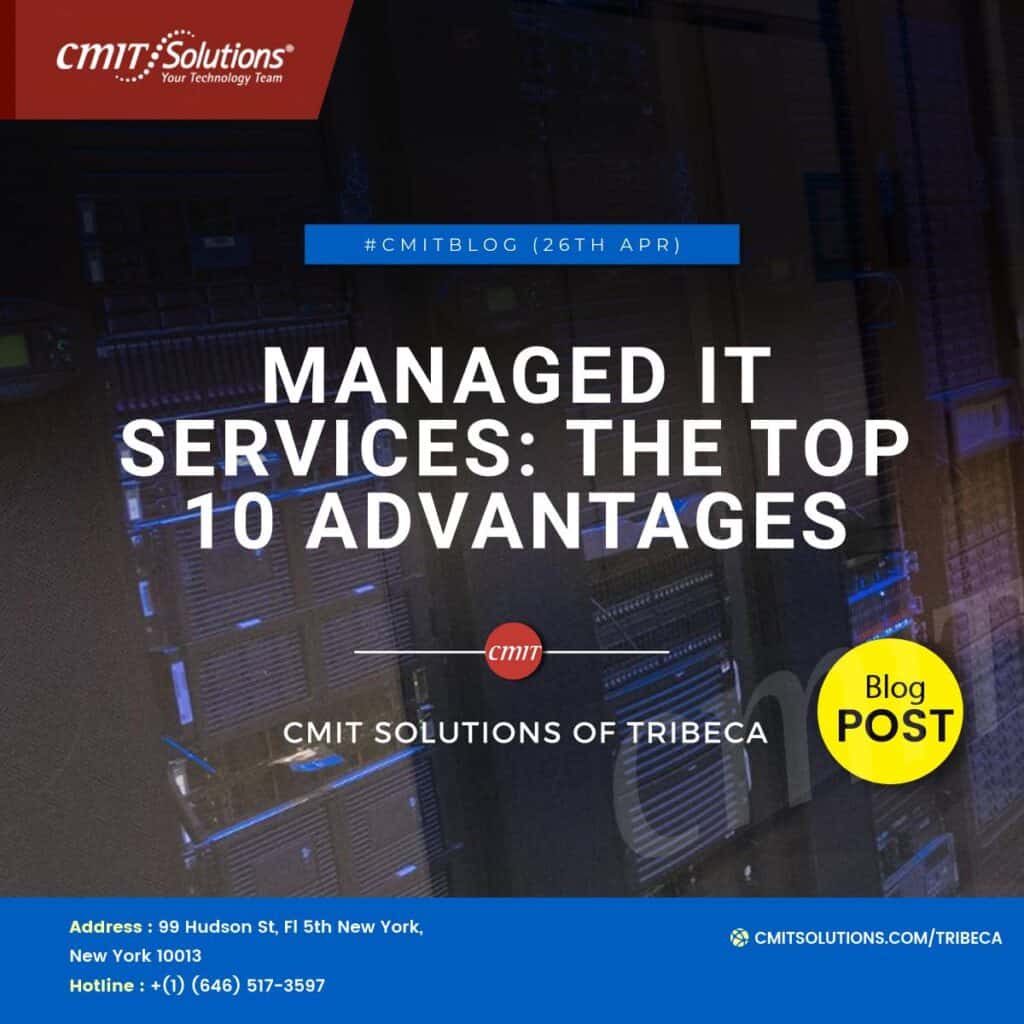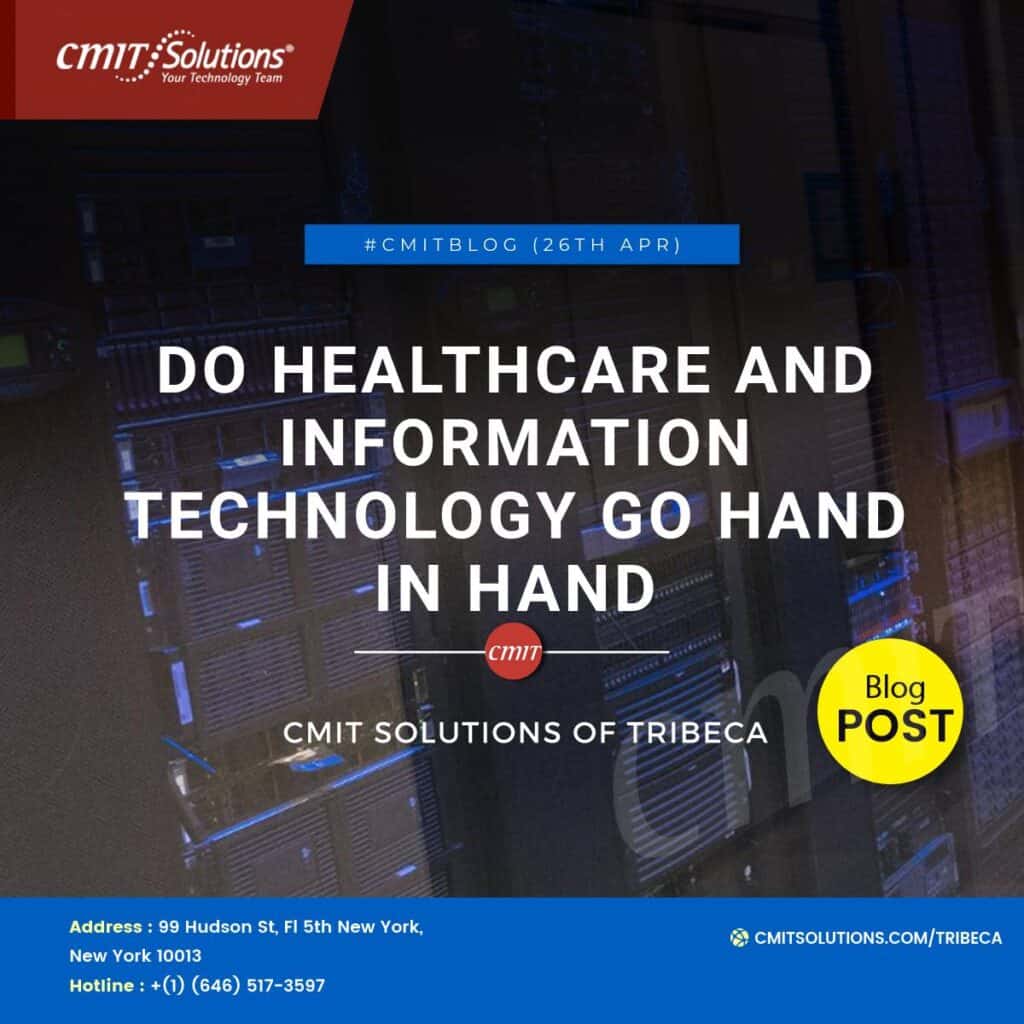As technology continues to make significant strides in the medical industry, the need for reliable and efficient IT services has become more apparent than ever. Medical device management is no exception, with hospitals and healthcare facilities relying on a variety of complex devices to diagnose and treat patients. It’s here that managed IT services come into play – providing crucial support that ensures these devices are functioning at their best while maintaining patient safety. In this blog post, we’ll explore the critical role of managed IT services in managing medical devices and how they can benefit healthcare providers.
What are Managed IT Services?
Managed IT services are a type of IT outsourcing that involves the proactive management of an organization’s IT infrastructure and end-user systems. Managed IT service providers (MSPs) deliver a wide range of services, including 24/7 monitoring and support, help desk support, data backup and recovery, network security, and more.
With managed IT services, organizations can offload their day-to-day IT management tasks to an MSP, freeing up internal resources to focus on other strategic initiatives. Additionally, managed IT services can help to improve organizational efficiency and reduce operational costs.
Medical device companies are increasingly turning to managing IT services to help them manage their complex IT environments. With the ever-changing regulatory landscape and the need to maintain compliance with industry standards, medical device companies require a high level of expertise and support that they may not be able to keep up with internally. Managed IT services can provide the comprehensive support needed to keep medical device companies compliant while also reducing costs and improving efficiencies.
The Benefits of Managed IT Services in Medical Device Management
Medical device management is a critical part of any healthcare organization. The right managed IT services can help keep medical devices running smoothly and efficiently while reducing the risk of downtime and data loss.
Here are some of the benefits of managed IT services in medical device management:
1. Increased uptime: Managed IT services can help increase the uptime of your medical devices, by providing proactive monitoring and maintenance. This way, you can be sure that your devices are always up and running when you need them.
2. Reduced downtime: In addition to increased uptime, managed IT services can also help reduce the amount of downtime your medical devices experience. By proactively monitoring for issues and addressing them quickly, managed IT services can help keep your devices running smoothly and avoid extended periods of downtime.
3. Improved security: Managed IT services can also help improve the security of your medical devices. By keeping your devices updated with the latest security patches and keeping an eye out for potential threats, managed IT services can help you keep your data safe from hackers and other cyber threats.
4. Better performance: In addition to increased uptime and improved security, managed IT services can also help improve the performance of your medical devices. By regularly maintaining your devices and troubleshooting any issues that arise, managed IT services can help keep your devices running at peak performance levels.
5. Lower costs: One of the biggest benefits of managed IT services is that they can help
The Different types of Managed IT Services
Managed IT services provide a comprehensive range of support for medical device management, from proactive monitoring and maintenance to data backup and disaster recovery. Here are the different types of managed IT services that can help keep your medical devices running smoothly:
1. Proactive Monitoring and Maintenance
With proactive monitoring, managed IT services can detect potential issues with your medical devices before they cause disruptions. This includes regular checkups of hardware and software, as well as patch management to ensure that your devices have the latest security updates.
2. Data Backup and Disaster Recovery
In the event of a major incident, data backup and disaster recovery services can help you get your medical devices up and running again quickly. Managed IT services can create backups of your data so that you can restore it if needed, and they can also provide support in setting up new systems after a disaster.
3. Help Desk Support
If you have any questions or problems with your medical devices, managed IT services can provide help desk support. This means that you can call or email for assistance whenever you need it, without having to worry about being unable to reach someone during an emergency.
How Managed IT Services can help reduce Medical Device Downtime
If you’re a medical device manufacturer, you likely understand the importance of having reliable and well-maintained equipment. After all, your devices are responsible for saving lives!
That’s why managed IT services can be such a valuable asset when it comes to medical device management. By partnering with a Managed Service Provider (MSP), you can outsource many of the day-to-day tasks associated with keeping your devices up and running – from monitoring and maintenance to patch management and security.
This not only frees up your time so that you can focus on other areas of your business, but it also helps to reduce downtime – something that can be extremely costly in the medical industry. Studies have shown that unplanned medical device downtime can cost healthcare organizations upwards of $17,000 per hour!
With managed IT services in place, you can rest assured knowing that your devices are in good hands and that any issues will be quickly addressed by experienced professionals. So if you’re looking for ways to improve your medical device management strategy, consider partnering with an MSP today.
Implementation and Integration of Medical Devices
Medical devices are becoming increasingly complex, and their integration into hospital and healthcare delivery systems can pose significant challenges. Managed IT services can play a vital role in medical device management, helping to ensure that devices are properly implemented and integrated into clinical workflows.
In addition to providing support for the installation and configuration of medical devices, managed IT services can also help with the ongoing management and maintenance of these critical systems. By proactively monitoring devices and keeping track of software and firmware updates, managed IT services can help keep medical devices running smoothly and prevent disruptions to patient care.
With the help of managed IT services, hospitals and other healthcare organizations can focus on providing quality patient care, safe in the knowledge that their medical devices are being well-managed and maintained.
Monitoring and Maintainance of medical devices
The monitoring and maintenance of medical devices is a critical component of any healthcare organization’s managed IT services. By proactively monitoring and maintaining medical devices, organizations can ensure that these devices are always in compliance with regulatory standards and are functioning properly. Additionally, regular maintenance can help to extend the lifespan of medical devices and prevent unexpected outages or failures.
Organizations should work with their managed IT service provider to establish a comprehensive monitoring and maintenance plan for all medical devices. This plan should include regular check-ups and tests to ensure that each device is functioning properly. Additionally, the plan should include provisions for responding to any alarms or alerts that may be generated by the devices. By having a well-defined plan in place, organizations can be sure that their medical devices are always operating safely and effectively.
Training and Support for Medical Device Users
Medical devices are becoming increasingly complex, and as a result, so are training and support for medical device users. Managed IT services can play a vital role in providing this training and support, helping to ensure that medical device users have the knowledge and skills they need to properly use and maintain their devices.
Some of how managed IT services can provide training and support for medical device users include:
– Providing online or desktop-based tutorials and training materials
– Creating user manuals and documentation
– Offering customer support and technical assistance
– Monitoring medical device usage and performance data
Managed IT services can also help to keep medical devices up-to-date with the latest software updates and patches, ensuring that users always have access to the latest features and security fixes. In addition, managed IT services can help to troubleshoot issues with medical devices, providing valuable assistance when problems arise.
Cybersecurity for Medical devices
As the use of medical devices in healthcare continues to grow, so does the need for effective cybersecurity. Medical devices are increasingly connected to hospital networks and the internet, which opens them up to potential cyber threats. A breach of a medical device could have serious consequences, including loss of patient data, disruption of care, and even patient harm.
That’s why managed IT service providers (MSPs) play an important role in medical device management. MSPs can help healthcare organizations secure their devices and protect against cyberattacks. Here’s a look at some of the ways MSPs can help with medical device cybersecurity:
1. Security assessments and vulnerability scanning: MSPs can help identify vulnerabilities in medical devices and systems. They can also conduct regular security assessments to ensure that devices are properly configured and patched.
2. Security event monitoring: MSPs can monitor suspicious activity on hospital networks and medical devices. This helps to identify potential threats early so that they can be addressed quickly.
3. Security incident response: In the event of a security breach, MSPs can help healthcare organizations contain the damage and minimize the impact on patients and operations. They can also guide how to prevent future incidents from occurring.
4. Cybersecurity training: MSPs can provide employees with training on how to identify and avoid potential cybersecurity threats. This is important for all staff members, from those who work directly with medical devices to
Conclusion
Managed IT services play a vital role in medical device management. By providing secure and reliable access to devices, managing maintenance, and ensuring compliance with regulations, managed IT services make it easier for healthcare providers to efficiently manage their medical devices. As technology continues to advance, the need for managed IT services will only continue to grow as they provide essential tools needed by healthcare organizations.





